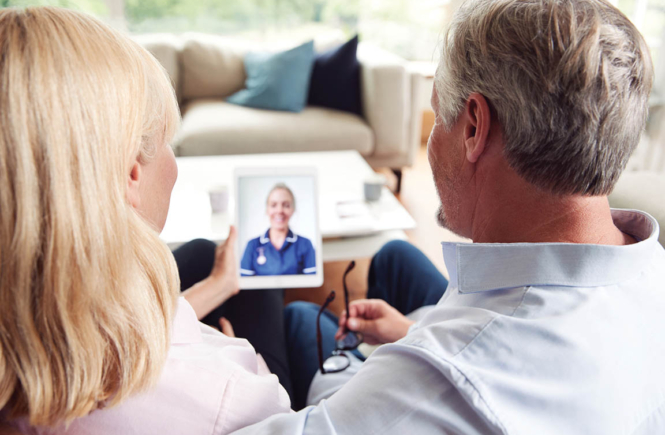Many prefer telemedicine over in-person appointments
Peninsula Regional Health System aims to make care more convenient for the communities it serves, so telemedicine is a natural fit.
It can be as simple as a telephone call or one of the many other telemedicine phone apps or video-based options; there are countless ways to communicate electronically between patient and provider.
These visits can be done by video on a smartphone camera, laptop with camera or personal computer with camera. There are even some visits that can be done simply over the telephone. It’s medicine at a distance, and it aids in evaluation and treatment.
Patients need to speak with their provider and the practice office staff to find out if their visits can be done through telemedicine and by which method; new technology is allowing for even greater video assessment and communication.
Dr. Jim Trumble, vice president of Clinical Integration for Peninsula Regional Health System, said patients should not have concerns about privacy during telemedicine appointments.
“Our conversations are very secure,” he said. “There are a variety of platforms out there that have been in existence for a while, and they offer that privacy — it’s just you and a doctor.”
While telemedicine isn’t a solution for everything, Trumble says it’s perfect for follow-ups and medication management.
“A lot of people are uneasy about it at first — there are certain mannerisms, certainly facial expressions, things that describe for us what they’re saying, so we have a better understanding, and I think people are afraid of losing that,” he said. “What we’ve found is that some people are apprehensive in the beginning, but they find they still get that connection with their provider and they become very comfortable and engaged in just a couple of visits.”
Many primary-care providers are now using telemedicine for annual checkups.
When a health concern arises, patients should first call their primary-care physicians; patients get the most efficient care because the provider knows them and their medical problems. If the provider is unavailable, urgent care should be the next point of contact. Patients should only visit the hospital’s Emergency Department for life-threatening problems.
If you believe you have been exposed to COVID-19 — and you’re showing symptoms, such as
a dry cough, fatigue or fever — please call your doctor, do not visit their office.

